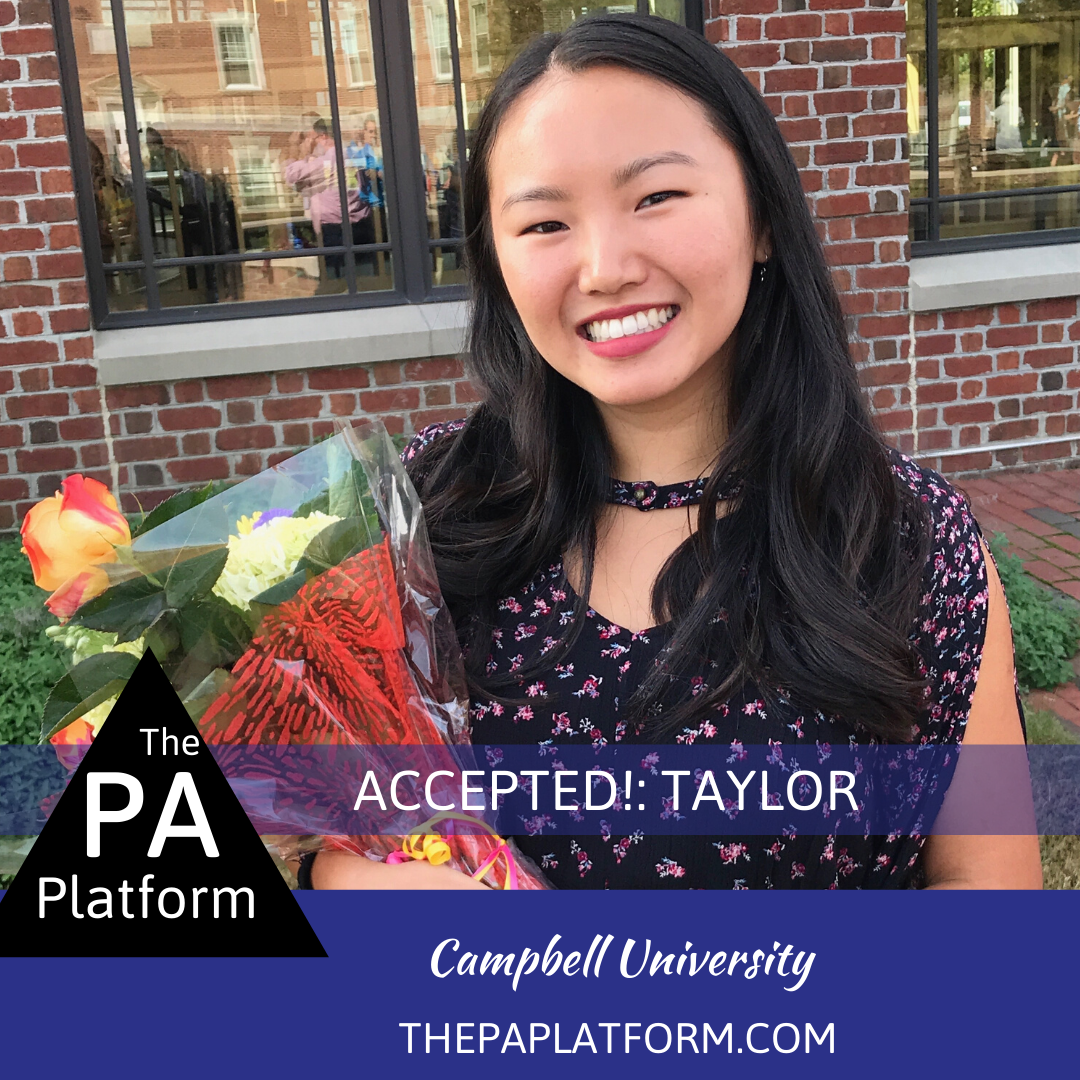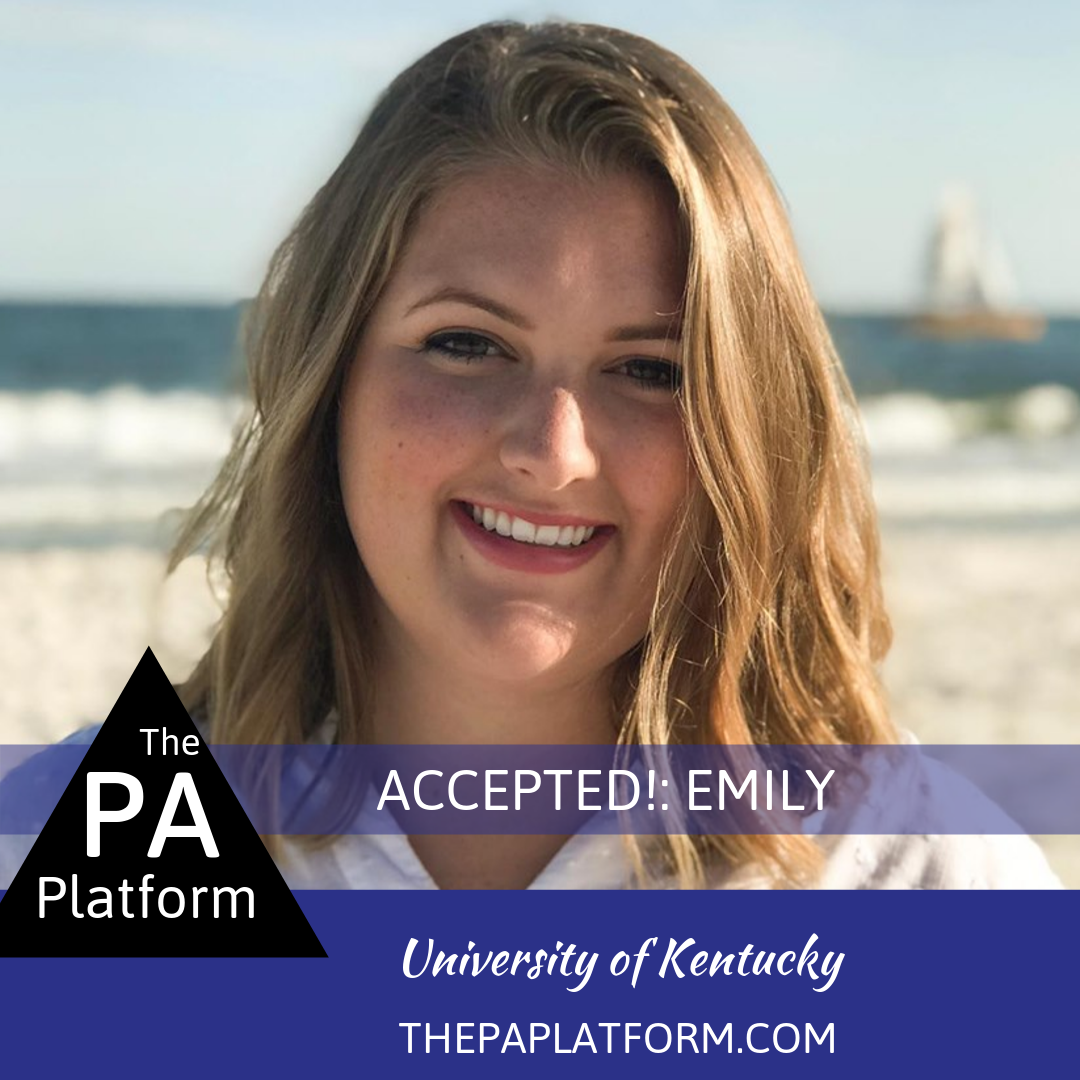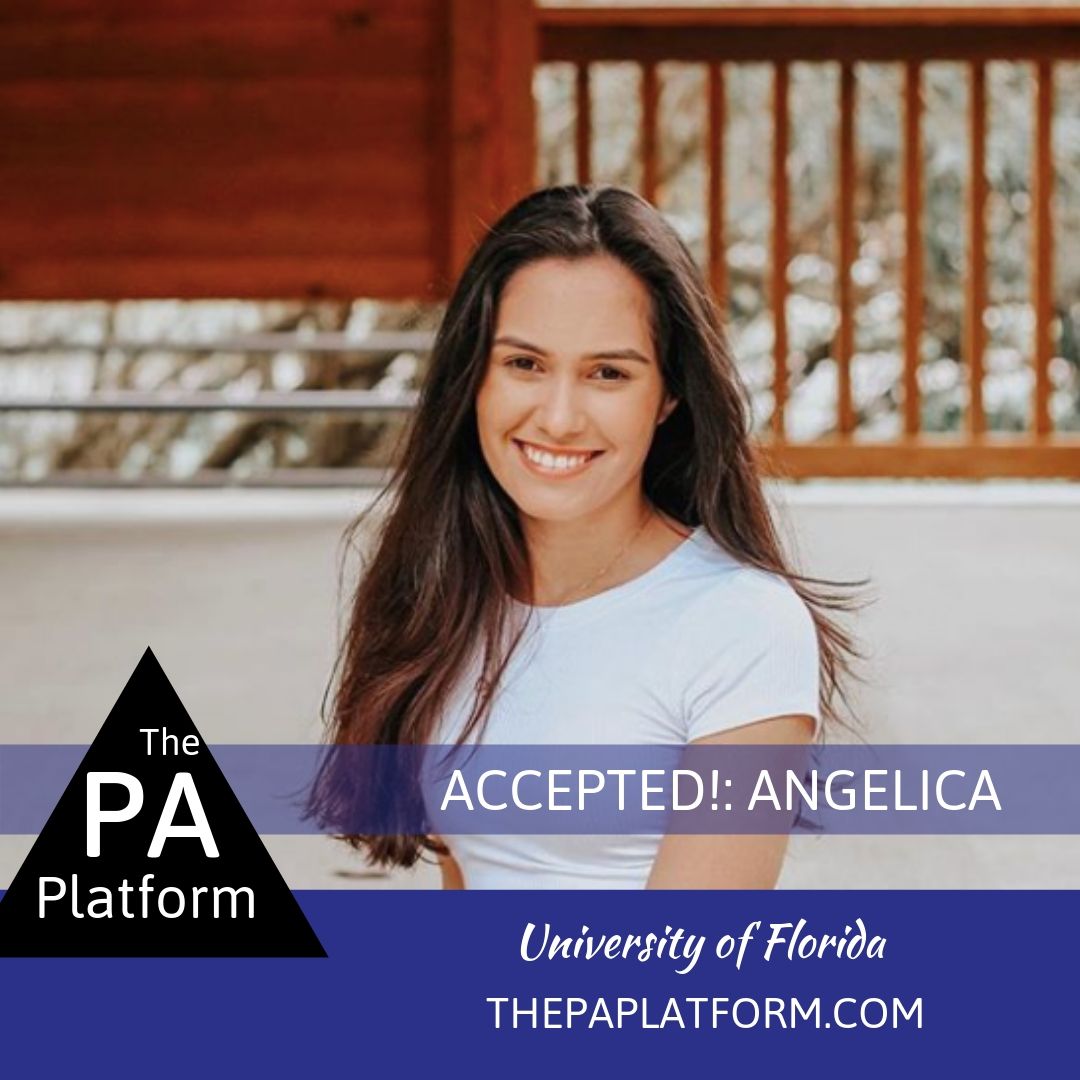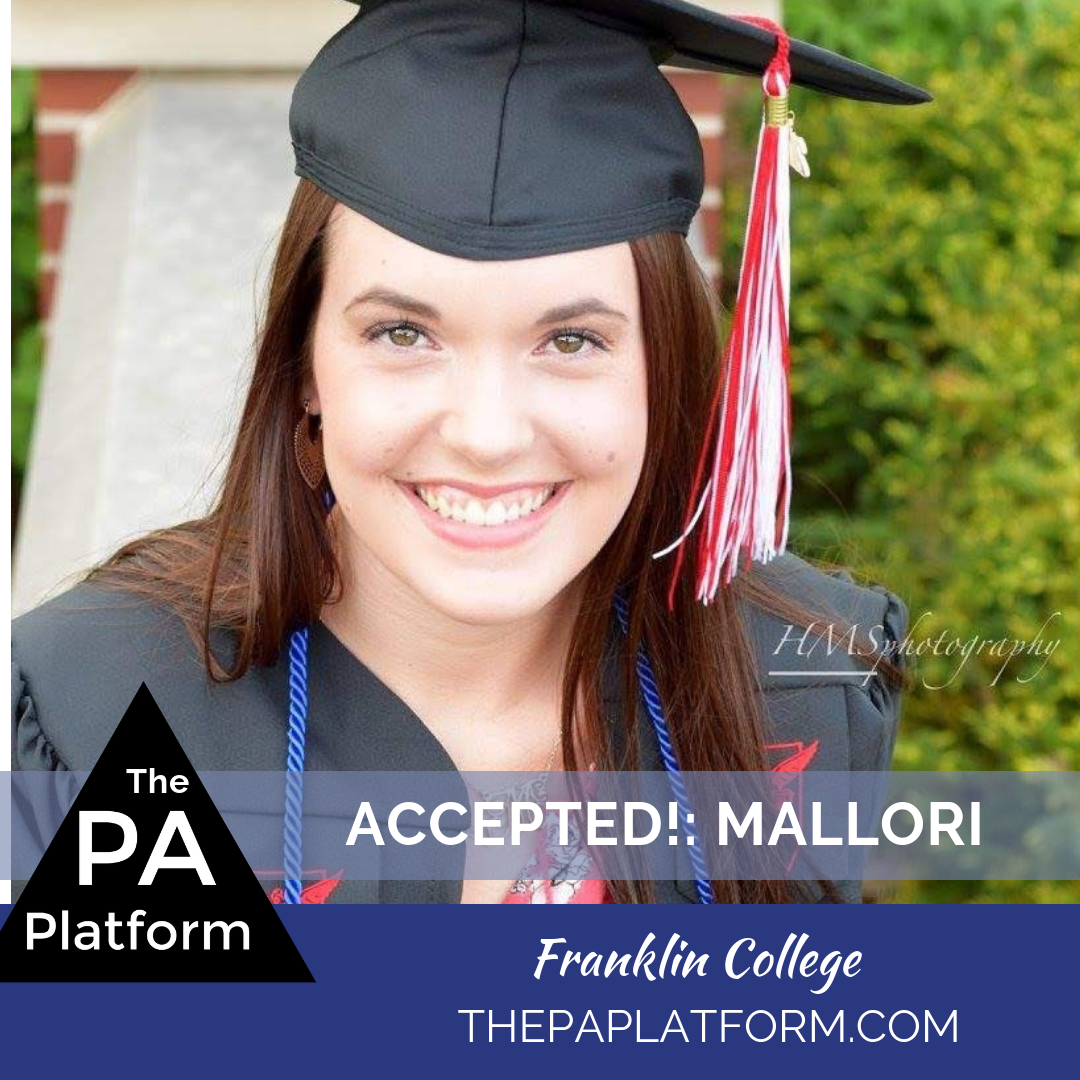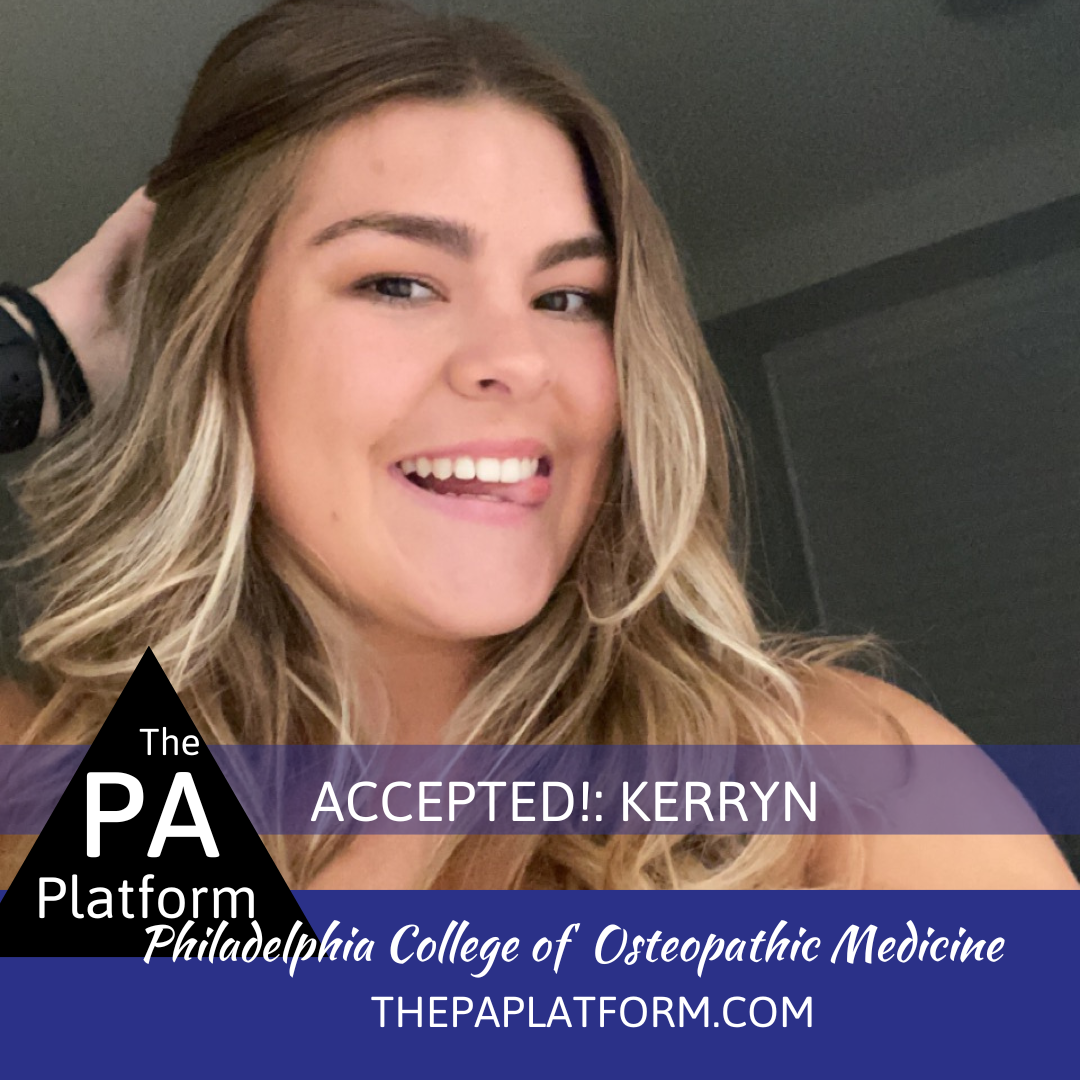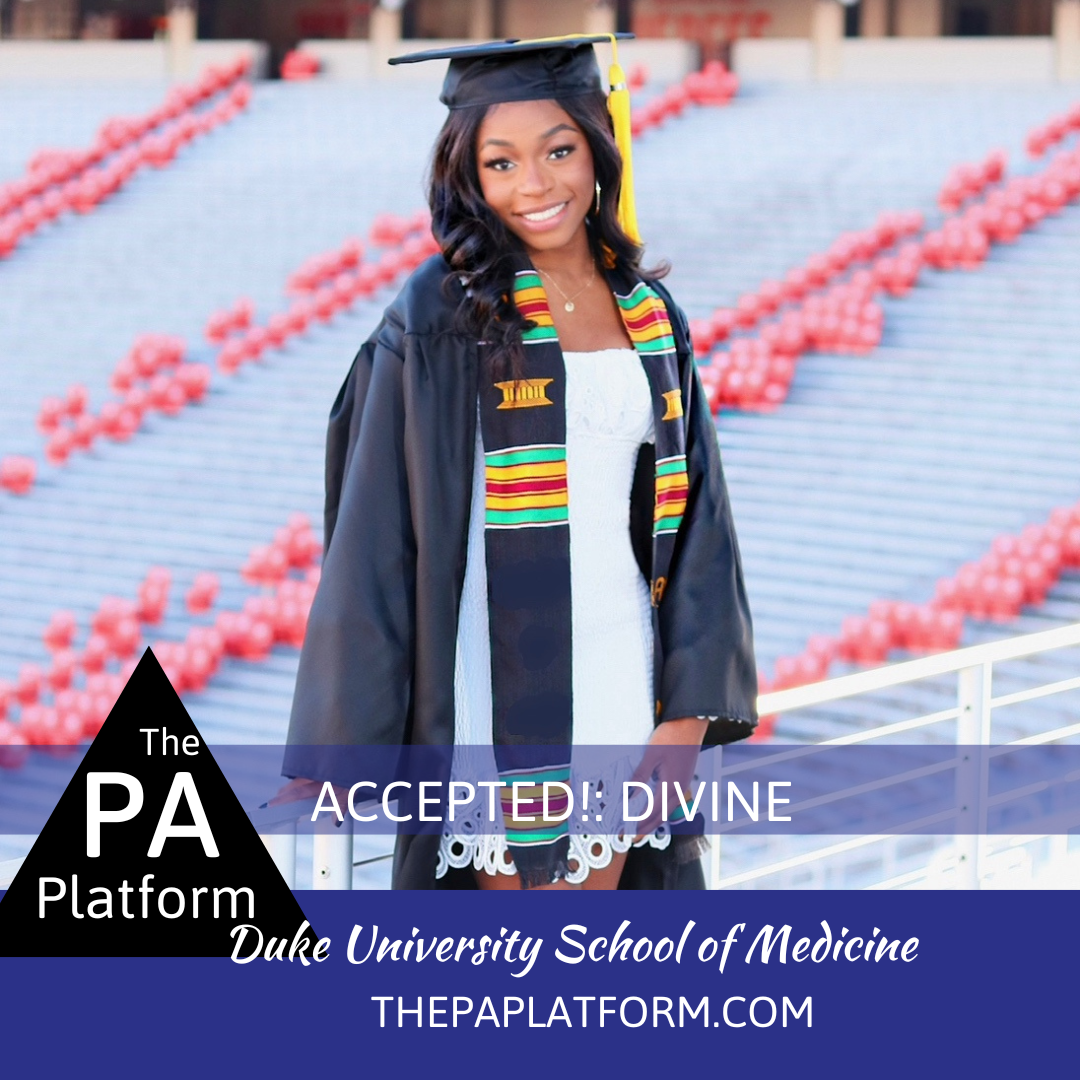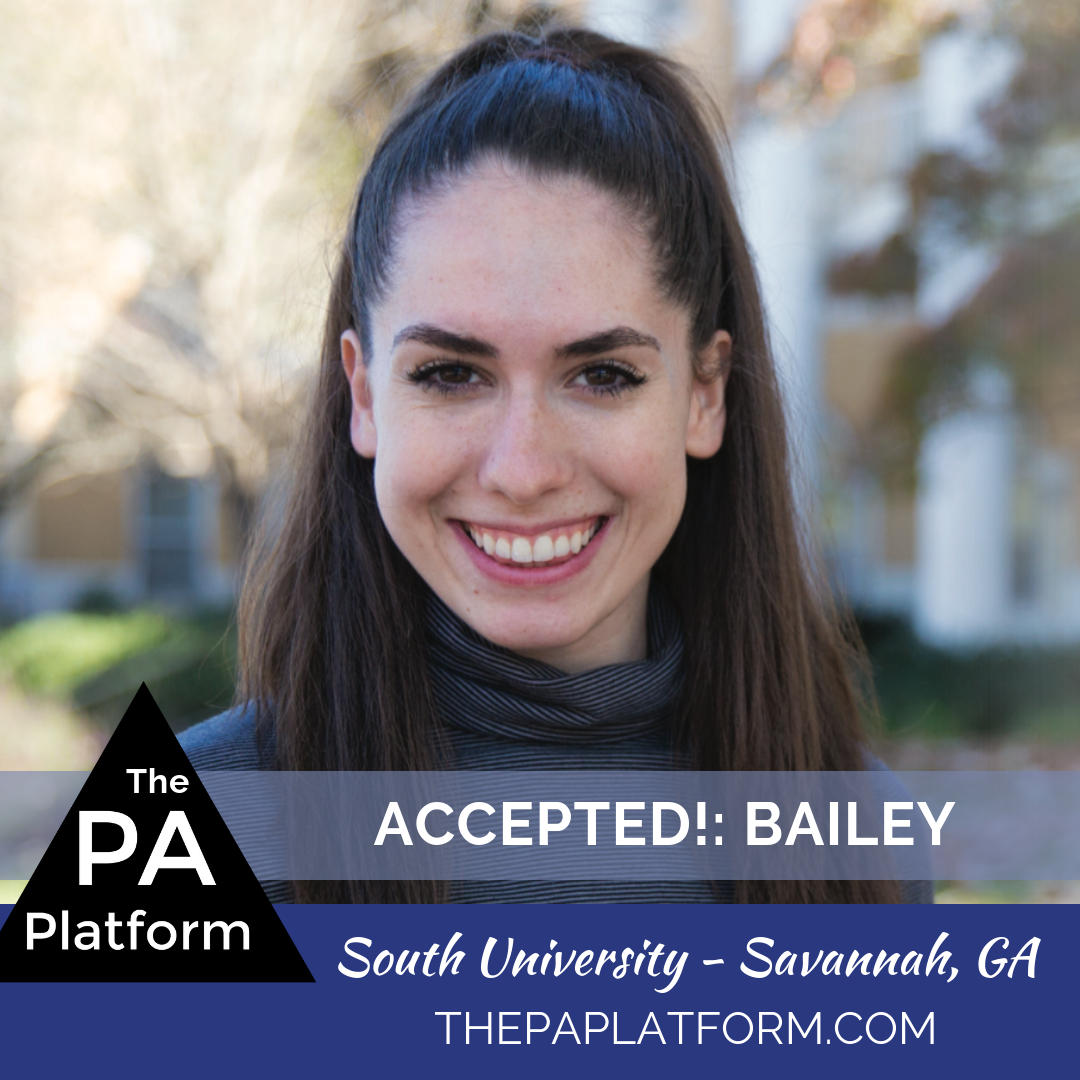Hello everyone, my name is Alexis. I am super excited to share my acceptance story and some of my pre-PA advice. Hopefully, you pre-PA peeps find this information helpful. Also remember every applicant is unique, so try not to get too caught up in the numbers.
Undergraduate education: B.S. in Biological Sciences with minors in Chemistry and Psychology at Florida State University (Go Noles!)
Overall GPA: 3.72
Science GPA: 3.79
GRE: 317 (Verbal = 159, Quantitative = 158, and Written = 4)
Total HCE hours: ~270
Total PCE hours: 266 at application (over 2,000 hours currently)
Shadowing hours: ~40
Other hours: I performed research in a neuroscience lab for a year to complete my Honors Thesis project and, afterwards, I worked in my neuroscience lab as a researcher/vivarium manager/lab manager for another year. So I had ~3500 research hours.
LORs: My neuroscience lab PI (also an assistant professor), my nursing director, and the ER PA I shadowed.
How many times did you apply?: 1
Age: 23
Gender: Female
How many programs did you apply to? 10
How many programs did you interview with and what were the outcomes? I received 6 interview invites and 4 rejections. Out of the 6 interview invites, I only attended 3 interviews and I was accepted into all 3 programs.
Where will you be attending? James Madison University
Any red flags on your application? My PCE hours were the biggest problem with my application. I truly did not think I was going to be accepted with PCE hours that low as a CNA. Also I received a D in Calc 2 during my first semester at FSU. To compensate for my low PCE hours, I put a lot of time and effort into making a strong personal statement that showed the diversity of my experiences and the importance of my experience in the neuroscience lab. I also worked really hard while at FSU to compensate for my one bad grade, so I practically only got straight A's after my first semester (plus 3 B's sprinkled over 2 years).
Anything you found surprising about interviews? The vast differences between each program's interview process. Some programs will provide you with a reassuring "application received" or "application under review" email after you submit CASPA, while other programs will leave you completely in the dark. Some programs will invite you for an interview 4 months in advance, while other will give you 4 days notice. The programs may have one-on-one interviews, three-on-one interviews, group interviews, or multiple mini interviews (MMI). So the point is to be prepared! I bought my suit, bought the "How to Ace the PA School Interview" by Andrew Rodican (affiliate link), wrote out answers to interview questions, thought of applicable patient care stories, practiced out scenarios, saved my money, and made friends at work (so they would be willing to switch days with me) BEFORE I was even invited for a single interview. There is absolutely no harm in preparing early, only benefits!
The most surprising part of the interview experience was the fact that I just knew when the program was right for me! Going into the interviews, I was planning on choosing a program based solely on their resources and cost. However, I ended up choosing JMU off of my gut. I got this amazing feeling from the faculty and current students that I would not only learn a lot and feel supported, but I would also have fun doing it. Obviously, JMU has an excellent PA program with great resources, but it was the most expensive school with which I interviewed. So I was very surprised at how little cost mattered and how important the program made me feel was for making my final decision.
Were there any helpful resources (books, websites, apps) you used to get through prerequisite courses, the application or interview process? Well my main resource for studying during undergrad was quizlet.com, flashcards are amazing! For the application and interview process, I read a lot of blogs to help prepare me as much as possible: thepaplatform.com, lifeasapa.com, doseofpa.blogpspot.com, pajourney.com, apthepa.blogpot.com. I also utilized thepalife.com's personal statement revision service to help ensure my personal statement was top-notch. As mentioned earlier, I used Andrew Rodican's interview book, but Savanna also has a PA school interview guide recently made available. I definitely suggest picking up one of those helpful interview books. I would not have felt so comfortable or performed so well in my interviews without thoroughly preparing beforehand. Side note- don't prepare by memorizing answers, just get an idea of the points you want to get across and a handful of experiences you may want to use.
Any other advice for other pre-PA students?
Don't let one weakness in your application prevent you from applying! Practically every applicant has a weakness in their application (GPA, PCE, GRE, etc), but they compensate for that weakness with strengths in other areas of their application. After reading all the accepted student stats on multiple PA programs' websites, I genuinely thought that I was going to get rejected from all 10 programs because I had very low PCE as a CNA. However, my application was very strong in every other way to compensate for my one weakness and I was invited to interview with 6 PA programs! So my advice is if you have a low GPA, then take some extra upper level courses during the application cycle to boost your GPA. And if you have low PCE, then work full-time during the application cycle to increase your hours. By working on your hours and grades even after submitting your application, you will be able to show the committee your improvements at the interview or, worst comes to worst, have a stronger application for the next cycle.
Be yourself! I think a lot of people try to alter their application or their interview answers to create this alternate persona that they believe the program's committee wants to see, but in reality they want to know about YOU! The committee genuinely wants to know who you are and to see your true passion for the PA profession.
Get involved in things you are actually passionate about. Again, a lot of applicants feel the need to show that they are "the perfect applicant" by volunteering for things in which they are not genuinely interested. Not only will you be unwilling to repeatedly commit your leisure time to something you are uninterested in, but also the people you are volunteering with will recognize your disinterest. If you get involved in a passion project (mine was my neuroscience research, some people play sports), then you will be excited to dedicate your nights and even weekends. Plus it will be an interesting topic of discussion for your interview that will allow the committee to see who you are and what your interests are.
My biggest piece of interview advice is to try to relax and enjoy yourself. You have already prepared for the interview, the work has been put in. Now is the time to socialize with your possible future peers and ask the current students all your burning questions (studying, housing, clinical experiences, etc). Also don't be scared to interview the program as well! Deciding which PA program to attend is a big decision. If you want to know how they compensate for not having a live cadaver lab or why their PANCE pass rates are lower than average, then don't be afraid to ask! You are investing your time and money into this program, so make sure they can take you across the finish line and help you pass your PANCE!
Where can we find you? (website, instagram, etc) If you want to read more of my pre-PA advice or follow along as I stumble my way through PA school, then check out my blog www.alexisleighpa.com and follow my instagram account @alexisleigh.pa_s. If you have any questions about my stats, the CASPA application, or the application process, please feel free to message me on instagram or email me at alexisleighpa@gmail.com. Thanks for reading my acceptance story!







